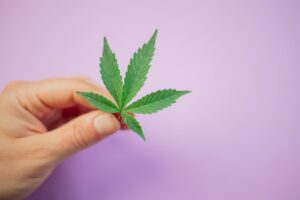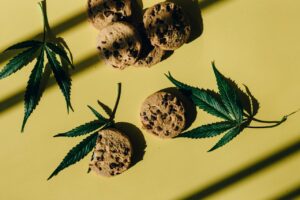Exploring the distinctions between THC and CBD is crucial for informed decision-making. Understanding their unique properties, effects, and applications empowers individuals seeking to leverage these compounds. With contrasting impacts on the mind and body, differentiating THC from CBD is essential for those navigating the realm of cannabis products. Dive into this comprehensive guide to unravel the real disparities between THC and CBD, shedding light on their diverse therapeutic potentials and legal implications. Stay informed about these prominent cannabinoids to make well-informed choices tailored to your needs.
Table of Contents
ToggleOrigin and Source of CBD vs. THC
Cannabinoids Extraction Process
CBD and THC are cannabinoids extracted from different parts of the cannabis sativa plant. CBD, also known as cannabidiol, is primarily sourced from hemp plants, while THC, or tetrahydrocannabinol, is more commonly found in marijuana plants.
The extraction process for CBD involves harvesting the flowers and leaves of hemp plants, which undergo various methods such as CO2 extraction or solvent-based extraction to isolate the cannabinoid. On the other hand, THC extraction from marijuana plants typically involves similar processes but with a focus on higher levels of this psychoactive compound.
Role in Endocannabinoid System
CBD and THC are two compounds in cannabis that affect our bodies differently. CBD doesn’t make you feel high, while THC can make you happy or change how you see things. CBD might help with anxiety, pain, and inflammation without strange feelings. THC is what makes you feel high because it connects strongly with receptors in the brain. If you want health benefits without feeling high, CBD could be good for you. But if you want to feel euphoric, THC might be better. It’s important to know these differences to choose the right one for you.
Hemp vs. Marijuana Plants
The primary source of CBD, hemp plants contain high levels of this cannabinoid alongside minimal amounts of THC (less than 0.3%). This makes CBD products derived from hemp federally legal in many regions due to their non-psychoactive nature.
Conversely, marijuana plants are cultivated for their elevated levels of THC, making them popular for recreational use but restricted in several jurisdictions due to their psychoactive effects. The differing compositions of these cannabis varieties contribute to the unique properties of CBD and THC products available in the market today.
Understanding the Difference Between CBD and THC
Psychoactive Effects
THC, with its psychoactive properties, is responsible for the “high” feeling commonly associated with marijuana use. On the other hand, CBD does not produce any intoxicating effects, making it a popular choice for those seeking therapeutic benefits without getting high.
CBD’s non-intoxicating nature has made it a preferred option for individuals looking to alleviate various conditions without experiencing the euphoria linked to THC consumption.
Impact on Neurotransmitters
The primary difference between CBD and THC lies in how they interact with neurotransmitters in the brain. While THC directly binds with cannabinoid receptors, particularly CB1 receptors, leading to psychoactive effects, CBD does not bind directly with these receptors. Instead, it influences them indirectly, affecting neurotransmitter activity without causing a high.
- THC: Directly binds with CB1 receptors
- CBD: Indirectly influences neurotransmitter activity
Legal Distinctions
When it comes to legalities, there are significant differences between CBD and THC. In many places around the world, CBD derived from hemp is legal as long as it contains less than 0.3% of THC. However, the legality of THC, especially when sourced from marijuana plants, varies widely depending on regional regulations.
Legal Differences:
- Hemp-derived CBD: Legal in many regions
- THC legality: Varies based on local laws
Effects on the Body Explained
CBD and Endocannabinoid System
CBD interacts with the endocannabinoid system by influencing receptors like CB1 and CB2, but it doesn’t bind directly to them. This interaction helps regulate various functions in the body.
CBD’s influence on the endocannabinoid system leads to potential therapeutic benefits without causing the “high” associated with THC. Unlike THC, CBD is non-intoxicating, making it a popular choice for those seeking relief without psychoactive effects.
Therapeutic Benefits of CBD and THC
CBD, which stands for cannabidiol, is a natural compound found in the cannabis plant. It is known for its ability to reduce inflammation in the body, which can help with conditions like arthritis and eczema. Inflammation is when a part of your body gets swollen and red, usually because of an injury or infection. CBD can also help people feel less anxious and sleep better at night. Anxiety is when you feel worried or scared about something, and it can make it hard to relax or sleep. CBD might be able to help calm those feelings down. THC, short for tetrahydrocannabinol, is another compound found in cannabis. It is often used by people who have pain that doesn’t go away, like in diseases that last a long time.
THC can change how your brain feels pain, which can make it hurt less. It can also make you feel a little funny or “high,” but this feeling can sometimes help people who feel sick from treatments like chemotherapy. Chemotherapy is a type of medicine that helps fight cancer, but it can make you feel really sick to your stomach. THC might be able to help you feel hungry and keep food down when you’re going through this treatment.
Pain Management and Inflammation
When we talk about how CBD and THC help with pain, it’s like having two superheroes with different powers! CBD fights inflammation in our bodies, which is like when you put ice on a bump to make it feel better. It also talks to our brain to tell it to calm down and not send as many pain signals. On the other hand, THC is like a quick fix that can make the pain go away right away because it changes how our brain works for a little bit. It’s like a magic spell that makes the pain disappear for a while! CBD is like a cool scientist who studies the body and figures out how to stop inflammation from happening. It’s like putting out a fire before it gets too big! But THC is more like a firefighter who comes in when there’s already a fire and puts it out quickly. It’s not a long-term solution like CBD, but it can help in emergencies when the pain is really bad. Thus, although they function differently, CBD and THC are both excellent at relieving pain. THC is like a lightning-fast superhero that comes to your rescue right when you need it most, but CBD is like a kind healer that works gradually but steadily.
Potential for Getting High
THC Euphoric Effects
THC, found in marijuana, is known for its psychoactive properties that induce a euphoric high when consumed. This compound interacts with the brain’s CB1 receptors, altering perception, mood, and cognitive functions.
Consuming THC through methods like smoking cannabis can result in a rapid onset of effects, leading to a pronounced feeling of being high. The intensity of the high depends on various factors such as the potency of the product and individual tolerance levels.
CBD Non-Psychoactive Nature
On the other hand, CBD, another compound in cannabis, does not produce a euphoric effect when consumed. Unlike THC, CBD does not directly bind with CB1 receptors in the brain, resulting in no alteration to perception or mood.
Individuals using CBD products do not experience the traditional high associated with marijuana use. Instead, CBD is primarily sought after for its potential therapeutic benefits without the risk of getting high.
Importance of Dosage
The likelihood of getting high from cannabis consumption heavily relies on the dosage and ratio of THC to CBD in a product. Products with higher THC concentrations are more likely to induce psychoactive effects compared to those with balanced ratios or higher CBD content.
When individuals consume cannabis products containing higher levels of THC, they are at an increased risk of experiencing euphoric sensations and impairment compared to products with lower THC content. Understanding the potency and composition of products is crucial in managing the risk of getting high.
Side Effects Comparison
THC Side Effects
THC, found in marijuana, can lead to increased heart rate and memory impairment. These side effects are common and may impact daily functioning. Users often experience nausea and anxiety as well.
CBD Side Effects
CBD tends to have milder side effects compared to THC. Users of CBD typically report dry mouth and drowsiness, which are generally well-tolerated. The absence of psychoactive effects in CBD contributes to its minimal adverse reactions.
Long-Term Risks
Long-term use of THC has been associated with potential risks. Chronic consumption of THC may result in cognitive impairments, especially in adolescents whose brains are still developing. Moreover, prolonged THC use is linked to an increased likelihood of developing psychiatric disorders.
Better Tolerability of CBD
In comparison, CBD offers better tolerability for users due to its non-intoxicating nature. Individuals seeking the medicinal benefits of cannabis without the unwanted psychoactive effects often turn to CBD products. The distinct lack of euphoria associated with CBD makes it a preferred choice for those prioritizing functionality while managing their health.
Forms of Consumption
CBD Options
CBD products come in various forms to cater to different preferences. Common options include oils, edibles, and topicals. Among these, CBD oils are popular for their ease of use and versatility. Users can consume them orally or add them to food and drinks.
CBD edibles, such as gummies or chocolates, offer a tasty way to incorporate CBD into daily routines. They provide a discreet method of consumption. For those seeking localized relief, CBD topicals like creams and lotions are applied directly to the skin. They are ideal for targeting specific areas.
THC Delivery Methods
When it comes to THC, individuals have diverse choices for consumption. Smoking, vaping, and edibles are among the most common ways to ingest THC.
Smoking is one of the traditional methods of consuming THC, offering quick effects due to direct inhalation into the lungs.
Vaping, on the other hand, involves heating the THC extract without combustion. This method is considered less harmful than smoking.
For a more discreet option, THC edibles provide a convenient way to consume without the need for smoking or vaping.
- CBD oils
- CBD edibles
- CBD topicals
- Smoking
- Vaping
- Edibles
Legal Landscape and Future Outlook
Federal Laws
CBD and THC face differing legal statuses at the federal level in the United States. While CBD derived from hemp is legal under the 2018 Farm Bill, THC, primarily sourced from marijuana plants, remains restricted due to its psychoactive properties.
The 2018 Farm Bill was a game-changer for the legal use of CBD, particularly hemp-derived variants. This legislation effectively removed hemp from the list of controlled substances, paving the way for a surge in research and commercialization of CBD products.
State Regulations
At the state level, laws regarding CBD and THC can vary significantly. Some states have embraced both compounds for medicinal or recreational purposes, while others maintain strict regulations or outright bans on certain forms of consumption.
Researchers closely monitor these diverse state laws to understand their impact on public health and well-being. By analyzing how different states approach legal use, researchers gain valuable insights into consumer behaviors and preferences regarding CBD and THC products.
Future Trends
As attitudes towards cannabis continue to shift, experts predict further changes in how CBD and THC are regulated. The increasing acceptance of cannabis for medical purposes has prompted policymakers to reconsider existing laws and explore new frameworks that balance public safety with individual freedoms.
In this evolving landscape, stakeholders from government officials to industry leaders are actively engaged in shaping the future of cannabis regulation. By staying abreast of these developments, individuals can make informed decisions about their consumption habits while contributing to ongoing discussions about the responsible use of cannabis products.
Choosing Between THC and CBD Products
Individual Needs
When deciding between THC and CBD products, it’s crucial to consider individual needs. CBD is often preferred for its non-psychoactive properties, making it suitable for those seeking therapeutic benefits without the “high” associated with THC.
Consulting Healthcare Professionals
Before choosing between THC and CBD, consulting healthcare professionals is essential. They can provide personalized recommendations based on medical history, current medications, and specific health conditions.
Desired Effects
Consider the desired effects when selecting a product. THC is known for its psychoactive properties, offering a euphoric sensation, while CBD is renowned for its calming and relaxing effects without altering one’s mental state.
Legal Considerations
Another critical factor to weigh is legal considerations. While CBD derived from hemp is federally legal in the United States, the legality of THC varies by state due to its psychoactive nature and potential for abuse.
Final Remarks
The distinctions between CBD and THC are crucial for consumers seeking to make informed choices. Understanding their unique properties, effects, and legal status is paramount. While CBD offers therapeutic benefits without the psychoactive effects of THC, the latter remains popular for recreational use due to its intoxicating properties. Consumers must weigh these factors when selecting products.
As the CBD and THC market continues to evolve, staying informed about regulations, product quality, and personal preferences is essential. By delving into the nuances of these cannabinoids, individuals can make educated decisions that align with their needs and goals. Whether seeking relief from ailments or recreational enjoyment, knowledge empowers consumers to navigate the diverse landscape of CBD and THC products effectively.
Frequently Asked Questions
1. What is the main difference between CBD and THC?
CBD and THC are both compounds found in cannabis, but THC is psychoactive, causing a “high,” while CBD is non-psychoactive and offers therapeutic benefits without intoxication.
2. Are there any significant side effects associated with smoking cannabis cannabinoid receptors from cannabis plants, and THC use?
Common side effects of THC include impaired memory and coordination, increased heart rate, red eyes, and dry mouth. CBD generally has fewer side effects but may cause fatigue or changes in appetite.
3. How do CBD and THC affect the body differently?
THC binds to CB1 receptors in the brain and nervous system, leading to psychoactive effects. CBD interacts with various receptors in the body, influencing functions like pain perception, mood, and inflammation without producing a high.
4. In what forms can CBD and THC be consumed?
Both CBD and THC can be consumed in various forms such as oils, edibles, capsules, topicals (creams/lotions), tinctures (sublingual drops), vaping products, and even flowers for smoking.
5. Is it legal to use products containing CBD, THC, or weed?
Laws regarding the legality of CBD and THC products vary by country/state. In many places, CBD derived from hemp is legal, while THC is subject to more restrictions due to its psychoactive nature. Always check local regulations before using these products.
Are You Searching For Top-Quality THC Products In Sacramento?
Look no further than A Therapeutic Alternative, a distinguished dispensary leading the charge in advocating for the rights of medical cannabis consumers for over a decade. We are more than just a dispensary; we are a dedicated team committed to enhancing your health and wellness journey with the therapeutic benefits of THC. Perfectly situated in the heart of Midtown Sacramento, close to the medical district, our location is designed for your utmost convenience. Experience our dedication to offering the finest THC products and unmatched service as soon as you enter our welcoming space.
We prioritize accessibility, ensuring our facilities are fully equipped to meet your needs. With an ADA lift and multiple parking options, including a dedicated lot behind our establishment and complimentary street parking, your visit will be seamless and stress-free. Become part of a community that values happiness and wellness through the responsible use of THC. Explore the wide range of THC products in Sacramento at A Therapeutic Alternative, or check out our online inventory. Visit us today and start your journey to holistic health with our supportive team guiding you every step of the way!




